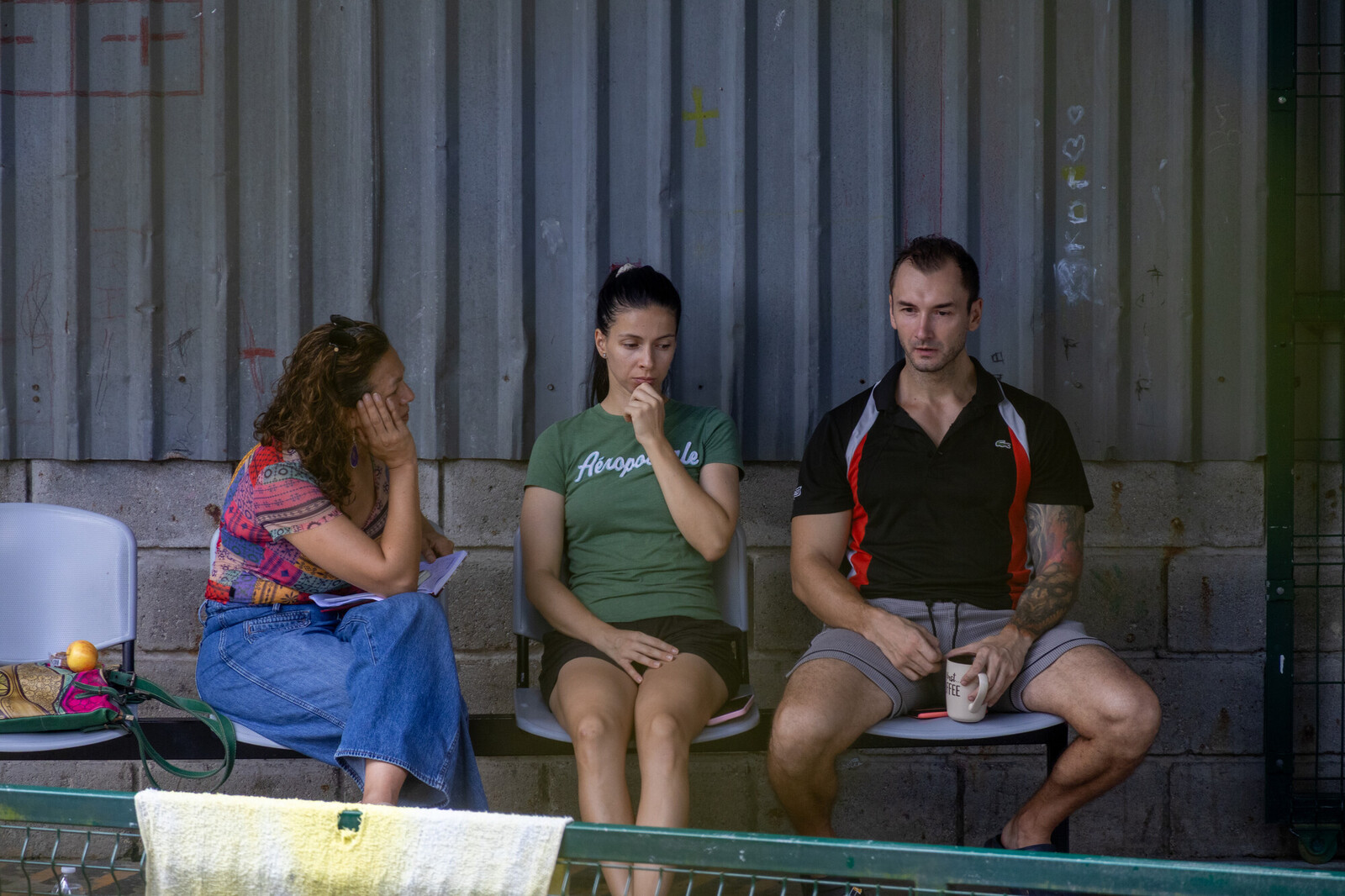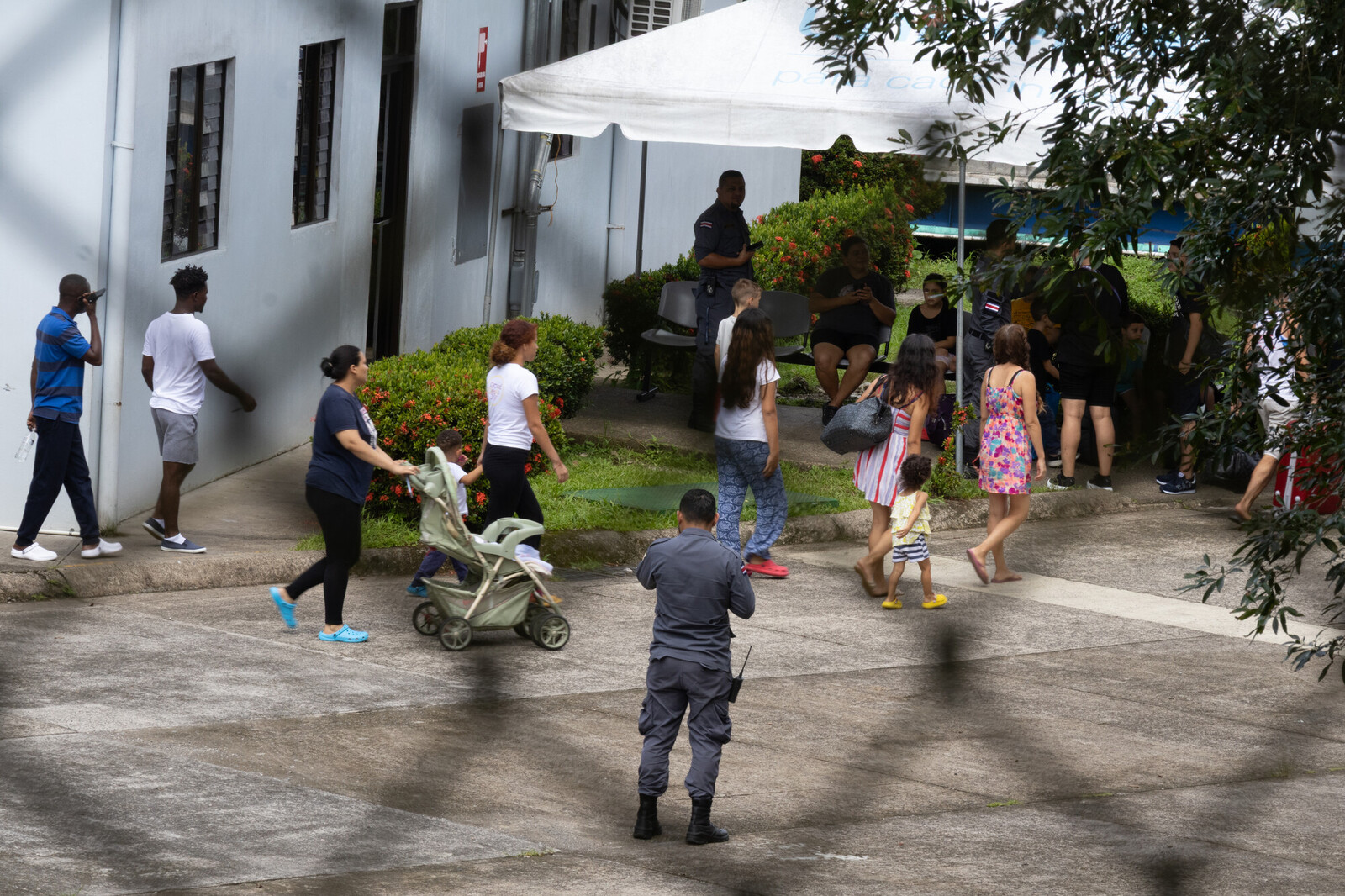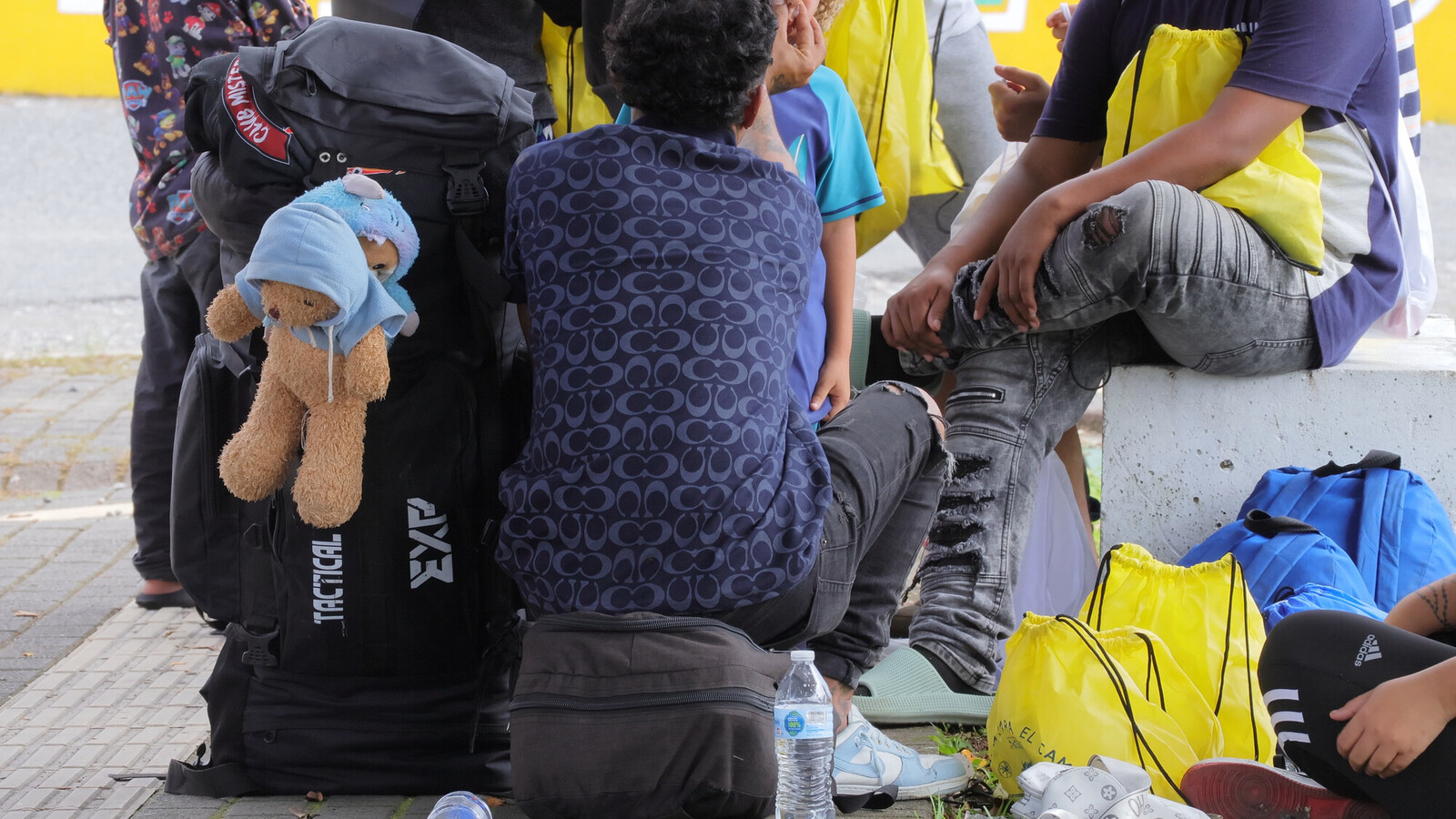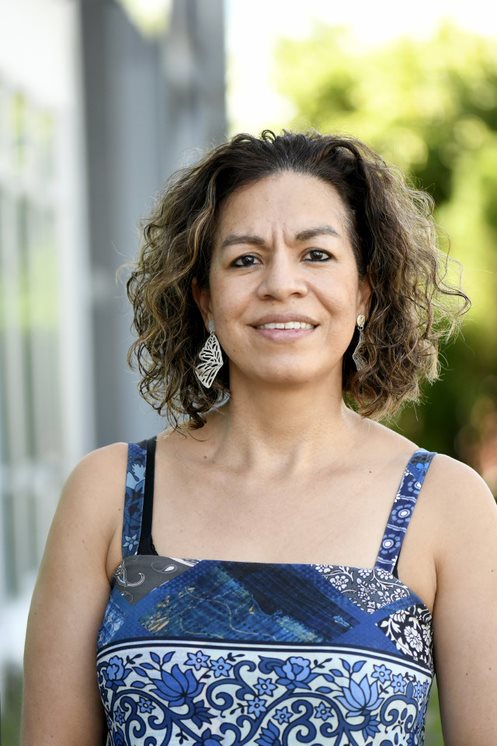
AFSC's Marcia Aguiluz Soto meets with migrants at CATEM, where over 200 people deported from the U.S. had been detained. Photo: Rodrigo Henríquez
Earlier this month, I traveled to the southern border of Costa Rica to visit the migrants who remain at CATEM detention center. These migrants had been removed to Costa Rica on deportation flights from the U.S. in February and detained for months.
When I last wrote about their situation in May, I shared the good news that the Costa Rican government had granted temporary humanitarian status to all who were detained. People are finally free to move about the country after months of being locked up.
And just this week, Costa Rica’s Constitutional Court further affirmed these migrants’ rights in a landmark decision. It ruled that their right to personal liberty had been violated and ordered authorities to pay compensation. This victory came after a petition filed by journalist Mauricio Herrera, with the support of AFSC and partners.
But even with freedom, migrants face enormous obstacles to rebuilding their lives. Today, AFSC continues to support people who were detained at CATEM. Currently, 42 migrants remain at the center—19 of them children. They are from Russia, Afghanistan, Turkey, Armenia, Azerbaijan, and Congo.
Those who are still at the center are some of the most difficult cases because they simply don’t know what to do next. None are originally from Latin America, let alone Costa Rica. They can’t return to their native countries because of persecution and violence. Yet they face enormous barriers to building new lives elsewhere.
The temporary permits granted by the Costa Rican government are valid for only three months, with a possible extension. But they don’t allow people to work, making it nearly impossible to support themselves or their families.
Some migrants have decided to return to Mexico to wait at the border, hoping they might somehow be allowed back into the U.S. Others have exhausted their resources and don’t have the money to leave Costa Rica. They find themselves truly trapped.
Stories of separation and hope
At CATEM, I met with two women—one from Russia, one from Armenia. Both have husbands in the U.S. seeking asylum.
The Russian woman is a 42-year-old lawyer traveling with two children, ages 3 and 15. Her husband had been persecuted by Russian authorities for his work, so the family decided it was best if he went to the U.S. with their 13-year-old son. When Russian authorities began threatening his wife and children, they decided to follow.

Although the Costa Rican government released migrants from detention, dozens of individuals remained because they had run out of options and resources. Photo: Rodrigo Henríquez
The other woman had fled a dangerous situation in Armenia and is now traveling with her two young boys. She, too, hopes to reunite with her husband in the U.S.
Both women are desperate to reunite their families. They made the difficult decision to fly to Tijuana, Mexico, hoping to be closer to their husbands. As they departed from CATEM, I watched as the two women tearfully hugged the other migrants they had come to know in detention. Then they boarded a bus with their children to San José to travel to the airport.
The night after they left, I received a heartbreaking phone call. The women were calling from the airport in Mexico City, where migration officers had denied them entry to the country. They were told they would be deported back to Russia and Armenia.
“We are so scared,” they said to me. “Please help us.”
I had feared this would happen. When the women left, they knew that this was a risk they were taking. This is an impact of what we call “border externalization.” In recent years, the United States—and other governments around the world—have enlisted other countries to shut out migrants before they can even reach their destination.
After receiving the phone call from the women, we contacted the refugee agency at the United Nations and the Mexican embassy in Costa Rica to assist. For hours, I worried these women and their children would be sent back to the very dangers they had fled.
We learned that Mexican authorities did not want to send them back to Costa Rica because they weren’t sure the Costa Rican government would let them return. I quickly contacted Costa Rican migration authorities, who agreed to let them back in.
Thankfully, the women were finally allowed to fly back to Costa Rica two days after they had left. I picked them up at the airport so they would see a familiar face when they arrived. We embraced. They were so relieved to be back.
For these women and countless migrants who have endured one horror after another, the trauma never stops. They have become ping-pong balls in a system that treats human beings as political pawns rather than people deserving of dignity and protection.
Some of the other migrants who were detained at CATEM have given up on legal immigration pathways. Last Sunday, several individuals—including children—left the center to walk north. They decided to take what is considered one of the most dangerous routes to reach the United States.
I asked them to stay in touch because I wanted to know they were safe. I received one brief message from them but haven’t heard anything since. The silence terrifies me, knowing the dangers migrants face on these routes.
Our ongoing call for justice
At AFSC, our Quaker belief in the inherent worth and dignity of every person guides everything we do. With support from local partners, we will continue to support migrants who were detained at CATEM in several ways. We are helping those who remain at CATEM figure out what to do next. We are offering to pay the fees for humanitarian permits for migrants who wish to stay in Costa Rica.

In Costa Rica and other Latin American countries, AFSC and partners are providing humanitarian aid and other services to migrants on their journeys. Photo: Rodrigo Henríquez
And we are working to secure safe accommodation for families. Local Quakers in Costa Rica have offered to host four migrant families, and we hope to have them settled in the next few weeks. For the remaining families, we are actively seeking other housing options to ensure they, too, can leave CATEM and begin rebuilding their lives.
Beyond CATEM, AFSC is providing humanitarian assistance to the dozens of migrants who arrive daily at Costa Rica’s southern border. We distribute food, water, and other aid. We provide information on resources and services for migrants. We also help migrants understand their rights and document the human rights violations they face during their journeys.
But these individual acts, while essential, are not enough. We need systemic change that recognizes the humanity of all people seeking safety, welcomes migrants with dignity, and offers legal pathways that allow them to thrive in their new communities.
When I picked up the two women at the airport after their terrifying ordeal, I saw relief in their eyes. But I also saw the weight of uncertainty about what comes next. One of them told me, “I don’t have any options left. I am tired. I am lost. I can’t think. I don’t know what else to do.”
Their journeys—from persecution in their home countries to detention in Costa Rica to rejection at Mexico's border—illustrate the impossible choices migrants face every day. No one should have to carry this burden alone. Until we create a world where seeking safety doesn’t require such suffering, we must stand firmly beside all who do.
